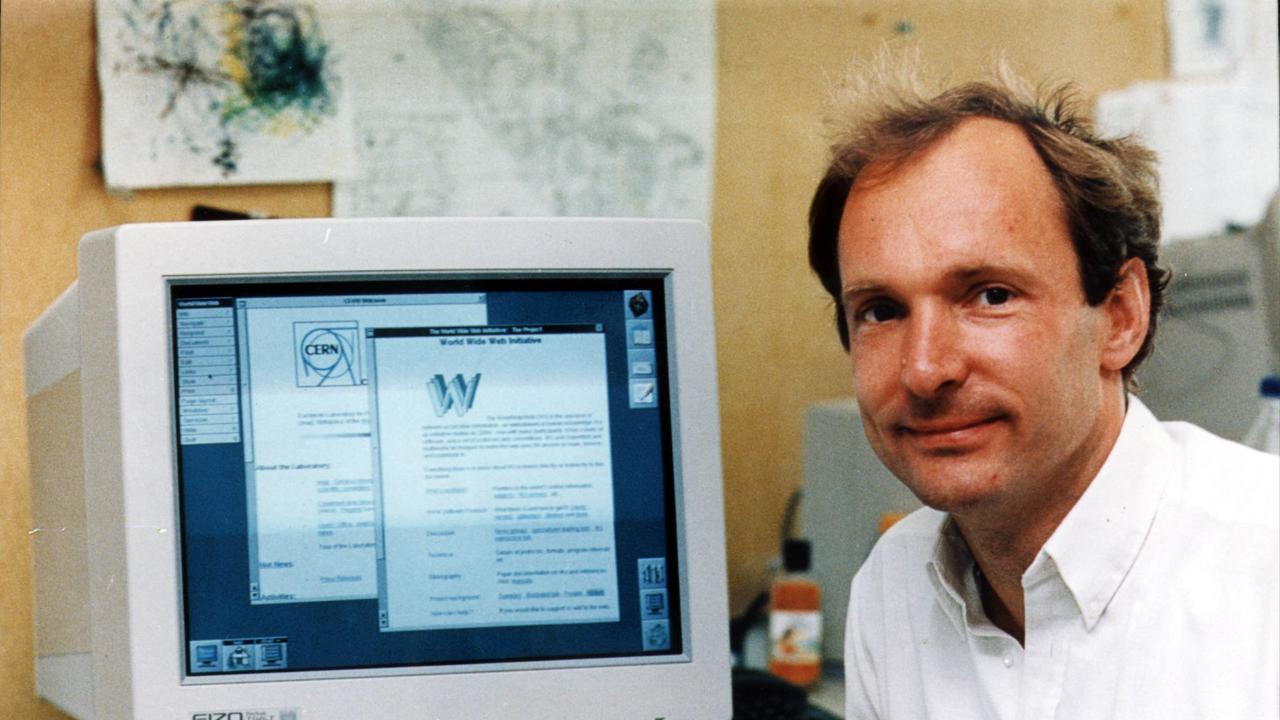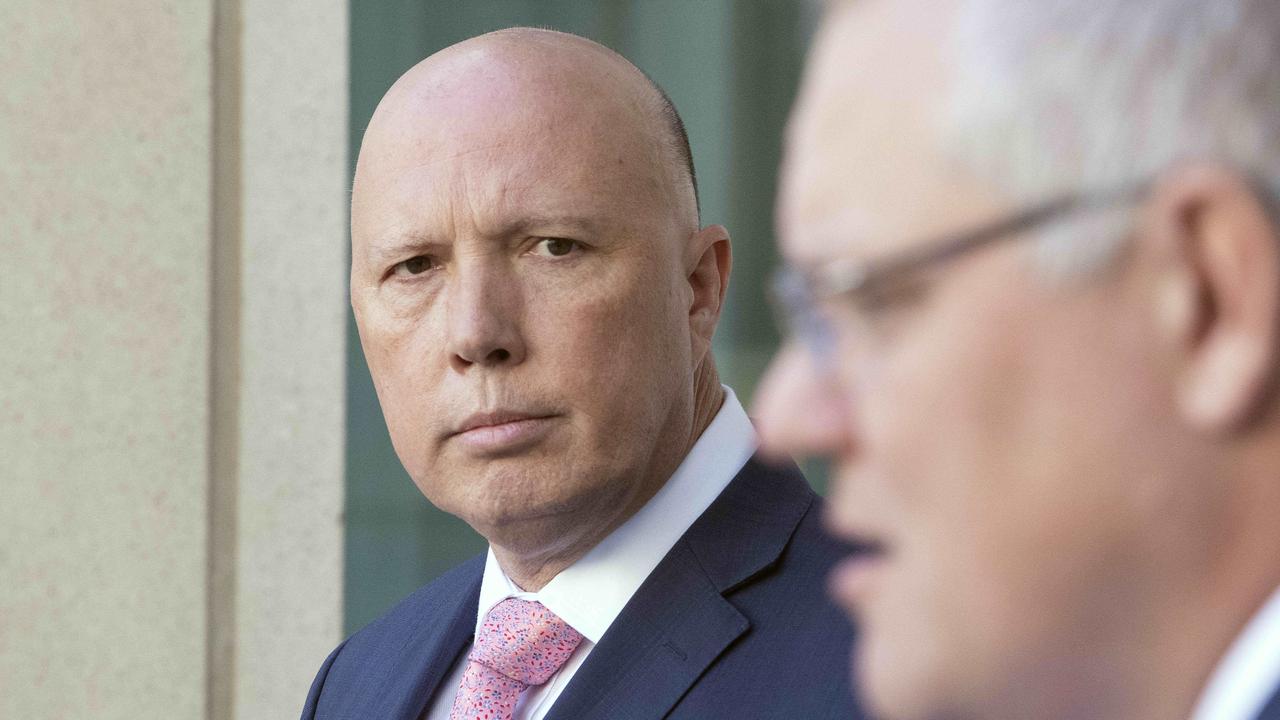The inventor of the World Wide Web warns of a ‘digital dystopia’ as he unveils plan to ‘fix’ internet.
Sir Tim Berners-Lee invented the World Wide Web you’re reading this on. Now he has a plan to fix where the internet’s gone wrong.
The creator of the World Wide Web is unveiling a plan to “fix” the internet.
British computer scientist Sir Tim Berners Lee, 64, has warned of a “digital dystopia” as he launches a global scheme to tackle misuse of the web, such as online harassment and fake news.
Sir Tim’s World Wide Web Foundation put together the Contract for the Web, calling on governments, companies and the public to ensure the web is a safe, free and open platform for all.
Launched in Berlin on Monday, it aims to halt ever-increasing online threats, such as election interference, invasion of privacy and the spread of disinformation.
The commitment has been backed by hundreds of organisations, including Google and Facebook, and sets out nine key principles.

“The power of the web to transform people’s lives, enrich society and reduce inequality is one of the defining opportunities of our time,” Sir Tim explained.
“But if we don’t act now, and act together, to prevent the web being misused by those who want to exploit, divide and undermine, we are at risk of squandering that potential.
“The Contract for the Web gives us a road map to build a better web. But it will not happen unless we all commit to the challenge.
“Governments need to strengthen laws and regulations for the digital age. Companies must do more to ensure pursuit of profit is not at the expense of human rights and democracy.
“And citizens must hold those in power accountable, demand their digital rights be respected and help foster healthy conversation online. It’s up to all of us to fight for the web we want.”
The plan tells governments to ensure everyone can connect to the internet, that access is not deliberately denied and to respect and protect people’s fundamental online privacy and data rights.

Companies are told they should make the internet affordable and accessible to everyone, respect and protect people’s privacy and personal data, as well as develop technologies that support the best in humanity and challenge the worst.
Meanwhile, citizens are urged to be creators and collaborators on the web, build strong communities that respect civil discourse and human dignity, and fight for the web.
Speaking to the Press Association, World Wide Web Foundation president and chief executive Adrian Lovett said one of the biggest concerns was that just under half the world had no access to the web at all.
“For those who do have the web, it has become much more complicated in the last few years, and I think the key issues there include the problem of disinformation, the challenge of data breaches and lack of security over our data and control over our data, and also governments in parts of the world increasingly closing down or censoring the web or parts of the internet around periods of unrest or elections and so on,” he said.
“We will have a process going forward after the launch of the contract to ensure that we track progress of all of those who have signed on, and others too who haven’t, and report that progress, make sure it’s public, make sure that we’re able to see who is going in the right direction and who is not.”
In March, Sir Tim called on people to think about the sort of web they want as he marked the 30th anniversary of his invention.
WHO IS SIR TIM BERNERS-LEE?

The computer scientist is best known for the unrivalled achievement of inventing the World Wide Web.
Credited by Time as one of the 100 greatest thinkers of the 20th century, Sir Tim is a famously modest man who has admitted to feeling like “quite an ordinary person”.
He was born in London on June 8, 1955 to computer scientists Mary Lee Woods and Conway Berners-Lee.
His parents were trailblazers in their own right – working on the first commercially built computer, the Ferranti Mark 1.
In March 1989, while working at the European Organisation for Nuclear Research (CERN), Sir Tim published a paper called Information Management: A Proposal.
In this he married up hypertext with the internet to create a system for sharing and distributing information not just within a company but globally.
This he named the World Wide Web.
He also created the first web browser and editor.
The world’s first website, http://info.cern.ch, was launched on August, 6, 1991.
It explained the World Wide Web concept and gave users an introduction to getting started with their own websites.
Do you think the web needs fixing? Let us know in the comments below.
This article originally appeared on The Sun and was reproduced with permission



